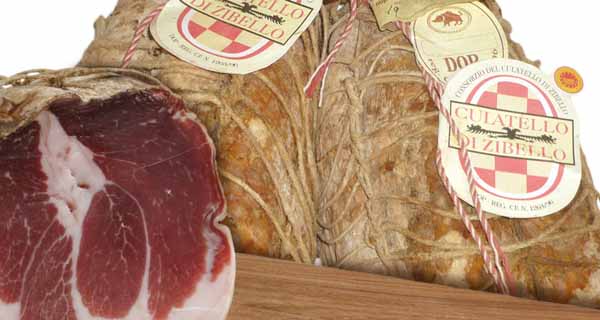
The 21 companies belonging to the Culatello di Zibello Pdo Consortium, have produced in 2013 only 48.000 hams according to Federalimentare data. In terms of result, 38,4% of production less than the 78,000 hams produced in 2011, seeing a drop and turning back top the traditional quantity level. The problem is wider. The name of Culatello remained for decades as a synonymous of absolute quality, now is in danger of being mystified and is on trial of its historical life. The phenomenon, so called Italian Sounding, has removed space from the original producers.
The President of the Consortium, Tito Tortini, expressed particular dismay: “ I’m not referring to the protection of Culatello di Zibello, because there are production regulations for it and a European trade mark that defends us, or at least should do, against counterfeit imitations. Unfortunately, this phenomenon is occurring in an increasingly insidious way. The market invasion of ‘culatte’, often sold with the name of ‘culatello con cotenna’. The product has a fine appearance when cut but it has absolutely nothing to do with Pdo Culatello di Zibello. In fact, even in terms of value, it costs less an half but involves a much more industrialized production process involving pigs that quite often come from abroad”. Since ten years, the Culatello has been the object of a democratization process. It is utterly fed up the proliferation of products using the name of culatello as a catchword: salame di culatello, lardo di culatello, pepita di culatello, culatta con cotenna.
Christmas gift account for about 30% of culatello produced. ” With the crisis, especially last year, the festive season did not perform nearly as well” Tortini said. If that backlash was the main cause for the in domestic fall in production, on the other hand the export is a small percentage: 3-4%. The Consortium sells in Europe and many other countries, from Canada to Australia, Japan and Hong Kong. Meanwhile Culatello in the mass market, we find it in the sandwiches sold in Autogrill as well as in the or in the Lidl pre-sliced packages among delicatessen meats. Pre-sliced products are expanding the trend involving large-scale distribution which especially emphasises price. What can be done to re-launch consumption? It may establish direct dialogue with qualified consumers, with restaurateurs, gastronomy outlets and traditional delicatessen, Tortini said.
Finally, it should be noticed how the Italian Sounding food business is worth 26 billion euros a year in the European Union alone, over twice the value of the nation’s export of the genuine goods of the region. The CIA farming association estimates that food piracy costs Italy some 60 billion euros a year in total.
